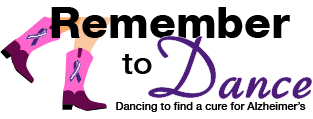
About twelve and a half years ago, my wife and I wanted to find a engaging new hobby, so
we decided to try square dancing lessons. We enrolled with the Sky Valley Whirlwinds, a club
in Mill Creek, Washington. It only took a few lessons and we were hooked. I loved everything
about it: the music, the callers, the camaraderie of the dancers, and the simple delight of
dancing. We received our graduation certificate in May of 2006, joined the Whirlwinds, and
attended every dance we could fit into our schedule, a hobby had bloomed into a passion.
The joy was dampened, however, by personal issues that weighed on my mind. My brother, Marty Bahr, had been diagnosed with Early Onset Alzheimer’s at the age of fifty. He was an executive at a major insurance company, and had to leave his position as symptoms began to manifest. Marty and his wife moved to Chicago, seeking treatment from Rush University Alzheimer’s Disease Center (RADC). He spent his final six years receiving excellent treatment there.
During all of this, I felt helpless. I knew I couldn’t save my brother, but I desperately wished that there was something I could do. I realized there was a way that I could help others facing the deadly diagnosis. Knowing the generous hearts of my fellow dance club
members, I approached the Sky Valley Whirlwinds and asked if they would be willing to put on a benefit dance, with all proceeds going toward Alzheimer’s research. The club unanimously passed on the motion and plans were set in motion. Callers volunteered to call for free and club members covered all the dance duties. The first Alzheimer’s dance was held in 2008 and much to the club’s delight, we raised $4002, all donated in support of research.
The following year’s dance did not disappoint, bringing in $7414, and the momentum for finding a cure continues. In the last ten years, we have raised almost $60,000, all of which has been sent to the research departments of Rush University and The University of
Washington. A website (www.remembertodance.org) has been set up so that dancers may donate to the cause online and keep up with recent news from the research department at the University of Washington.
In 2018, we were able to branch out, and as a result dances were held in Kirkland, Olympia, and Spokane. My passion was — and still is — so profound, I asked myself, “Why stop here?” Since then, I have contacted clubs in Oregon, Canada, and Australia, seeking their
help to make these benefit dances a global endeavor. When I retire in a few years, I plan to travel the country visiting square dance clubs, encouraging them to follow our example by taking one day out of their busy schedules to raise money for a cure.
I can’t bring my brother back, but I hope to see this disease eradicated so that others won’t have to suffer the same loss. My aspiration is to see square dancers worldwide working to wipe out Alzheimer’s and having fun at the same time. I beseech you as callers to let it begin with you. One dance a year can make an incredible difference.
Respectfully,
Joe Bahr
| |||||||

